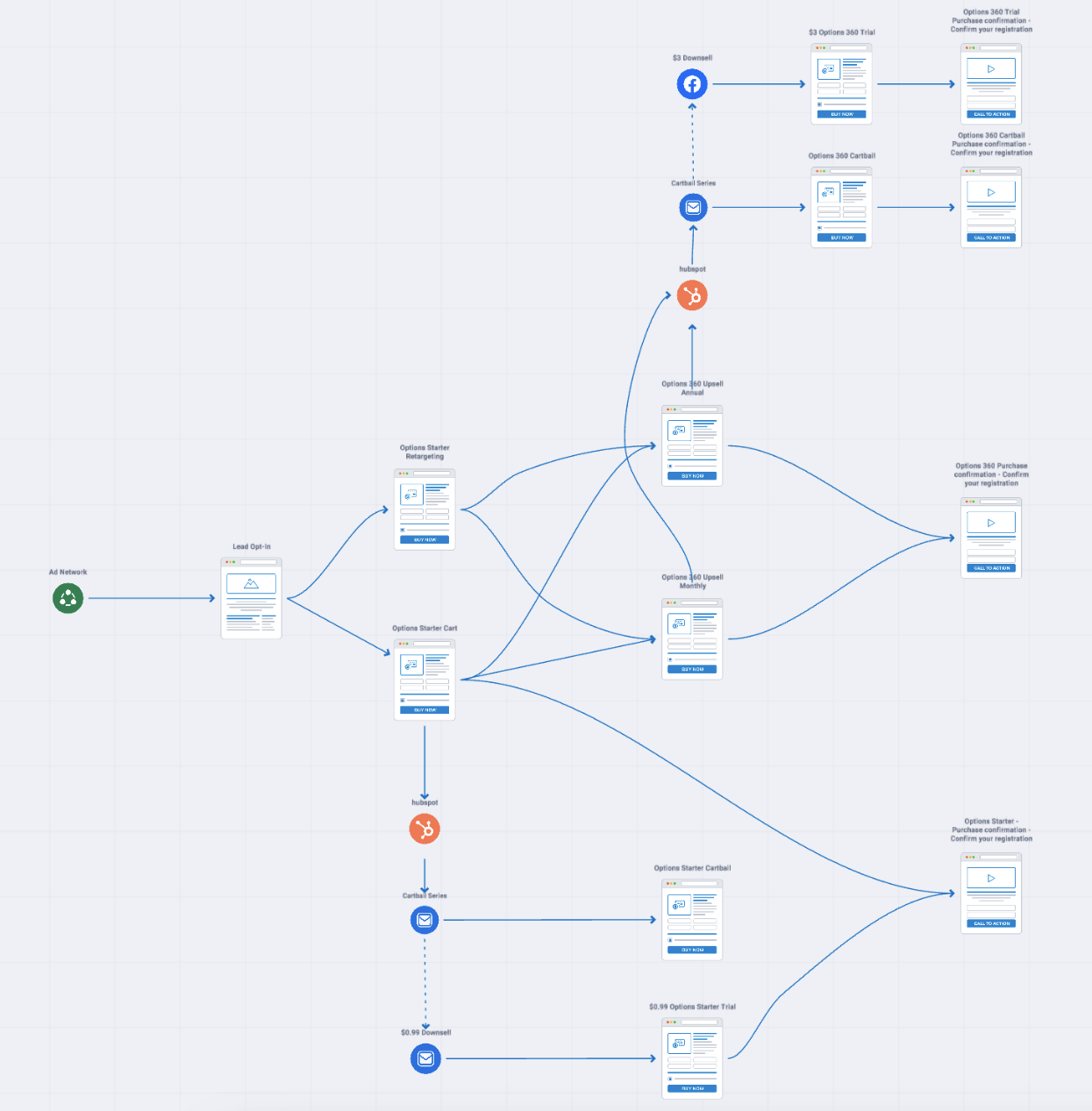In the world of pay-per-click (PPC) advertising, one key factor can greatly impact the success of your campaigns: quality scores. Understanding the importance of quality scores and effectively troubleshooting low scores can make a significant difference in the performance of your PPC campaigns. In this article, we will delve into what quality scores are, how they impact PPC performance, and strategies to improve low quality scores for better results.
Understanding the Importance of Quality Scores in PPC
Quality scores are a crucial metric used by search engines like Google to evaluate the relevance and quality of your PPC ads. They play a vital role in determining your ad’s position on the search engine results page (SERP) and the cost per click (CPC) you pay. Achieving high quality scores can lead to better ad placements, lower CPCs, and ultimately, improved PPC performance.
What is a Quality Score?
A quality score is a rating that search engines assign to each of your keywords on a scale from 1 to 10, with 10 being the highest. It is influenced by several factors, including keyword relevance, ad text, landing page experience, and historical account performance. A higher quality score indicates that your ads are highly relevant to users and provides a positive user experience.
Keyword relevance is one of the key factors that contribute to a high quality score. When your keywords closely match the search queries entered by users, search engines recognize the relevance and show your ads to the right audience. This increases the chances of attracting clicks from users who are actively searching for what you offer.
Ad text is another important element that affects your quality score. Well-crafted ad copy that accurately reflects the content of your landing page can improve your quality score. It is essential to create compelling and concise ad text that entices users to click on your ads and explore your offerings further.
Landing page experience is also taken into consideration when determining your quality score. Search engines analyze the relevance and usability of your landing page to ensure that it provides a seamless user experience. A well-designed landing page that aligns with your ad’s message and offers valuable content can positively impact your quality score.
Furthermore, historical account performance plays a role in determining your quality score. Search engines consider the overall performance of your account, including click-through rates, ad relevance, and landing page experience over time. Consistently delivering high-quality ads and maintaining a positive user experience can contribute to a higher quality score.
How Quality Scores Impact PPC Performance
Quality scores directly impact your PPC performance in multiple ways. Firstly, they influence your ad’s position on the SERP. Ads with higher quality scores are more likely to appear in top positions, which tend to attract more clicks. When your ads are prominently displayed at the top of the search results, they are more visible to users, increasing the likelihood of generating clicks and driving traffic to your website.
Secondly, quality scores affect your CPC. Higher quality scores result in lower CPCs, making your advertising budget go further. When search engines determine that your ads are highly relevant and provide a positive user experience, they reward you with lower costs per click. This means that you can achieve better ad placements and attract more clicks while spending less on each click, maximizing the return on your advertising investment.
Lastly, quality scores impact the likelihood of your ads being shown at all. Ads with low quality scores may not be displayed, limiting their visibility and potential click-through rate (CTR). By focusing on improving your quality scores, you increase the chances of your ads being shown to a wider audience, increasing your reach and potential for conversions.
In conclusion, understanding the importance of quality scores in PPC is essential for optimizing your advertising campaigns. By focusing on improving keyword relevance, crafting compelling ad text, providing a seamless landing page experience, and consistently delivering high-quality ads, you can achieve higher quality scores. This, in turn, will lead to better ad placements, lower CPCs, and improved overall PPC performance.
Identifying the Causes of Low Quality Scores
If you find yourself struggling with low quality scores, it is essential to identify the underlying causes. By pinpointing the specific areas where improvements can be made, you can implement targeted strategies to boost your scores. Here are three key factors to consider:
Keyword Relevance and Quality Scores
One common culprit for low quality scores is the lack of keyword relevance. Ensure that your chosen keywords align closely with the intent of your target audience. Conduct thorough keyword research to identify relevant and highly searched terms. Additionally, organize your keywords into tightly themed ad groups for greater relevance.
When it comes to keyword relevance, it’s important to understand that search engines strive to deliver the most relevant results to users. If your keywords are not closely aligned with what users are searching for, your quality scores may suffer. Take the time to analyze search trends and user behavior to gain insights into the keywords that are most likely to resonate with your target audience.
Furthermore, consider the context in which your keywords are used. Are they integrated seamlessly into your ad copy and landing page content? The more cohesive and relevant your keywords are throughout the entire user journey, the higher your quality scores are likely to be.
Ad Text and Quality Scores
The text used in your PPC ads plays a crucial role in determining your quality scores. Craft compelling ad copy that clearly communicates your value proposition and encourages users to click. Incorporate your keywords into your ad text naturally, without sacrificing readability. A strong and relevant ad text can significantly impact your quality scores.
When creating ad text, it’s important to strike a balance between being persuasive and providing accurate information. Misleading or exaggerated claims may lead to a negative user experience and lower quality scores. Focus on highlighting the unique selling points of your product or service in a concise and compelling manner.
Additionally, consider the relevance of your ad text to the landing page it leads to. If there is a disconnect between the promises made in the ad and the actual content on the landing page, users may feel misled and quickly bounce back. Ensuring a seamless transition from ad to landing page is crucial for maintaining high quality scores.
Landing Page Experience and Quality Scores
Another factor that heavily influences quality scores is the experience users have when they click on your ads and land on your website. Make sure your landing pages are optimized for relevance and provide a seamless user experience. Ensure that the landing page content aligns with the ad’s promise and that the page loads quickly. Consider factors like mobile responsiveness, clear navigation, and compelling calls to action for a better landing page experience.
When it comes to landing page experience, user satisfaction is key. Search engines want to ensure that users are directed to pages that meet their needs and provide a positive experience. Therefore, it is crucial to create landing pages that are not only visually appealing but also provide valuable and relevant content.
Consider conducting A/B tests to optimize your landing page elements, such as headlines, images, and forms. By continuously refining and improving your landing pages, you can enhance the overall user experience and subsequently improve your quality scores.
Furthermore, keep in mind that mobile devices are increasingly used for online searches. Therefore, it is essential to optimize your landing pages for mobile responsiveness. A mobile-friendly design ensures that users can easily navigate and interact with your website, leading to higher engagement and potentially higher quality scores.
Strategies to Improve Low Quality Scores
Now that we have identified the causes of low quality scores, let’s explore some strategies to improve them:
Enhancing Keyword Relevance
Enhancing keyword relevance is crucial for improving quality scores. Here are some effective strategies:
- Review your keyword lists and remove any irrelevant or low-performing keywords. By regularly auditing your keyword lists, you can ensure that you are targeting the most relevant terms for your ads.
- Refine your keyword targeting by using match types effectively. Broad match, phrase match, and exact match can help you reach different segments of your target audience. Experiment with these match types to find the best combination for your campaigns.
- Regularly monitor search terms reports to identify new relevant keywords and negative keywords to add. By analyzing the actual search terms that trigger your ads, you can discover new keywords to target and negative keywords to exclude, improving the overall relevance of your campaigns.
Optimizing Ad Text
Optimizing your ad text is another important aspect of improving quality scores. Consider the following strategies:
- Perform A/B testing to identify the most effective ad variations. By testing different ad headlines, descriptions, and calls to action, you can determine which combinations resonate best with your target audience.
- Incorporate your targeted keywords into your ads while maintaining an engaging and natural flow. Keyword insertion can help make your ads more relevant to the user’s search query, increasing the likelihood of a higher quality score.
- Create unique ad copy for different ad groups, aligning with the specific keywords and audience intent. Tailoring your ad text to match the user’s search intent can significantly improve the relevance of your ads and boost your quality scores.
Improving Landing Page Experience
The landing page experience plays a crucial role in quality scores. Here are some strategies to enhance it:
- Ensure that your landing pages are optimized for fast loading times, both on desktop and mobile devices. Slow-loading pages can lead to a poor user experience and negatively impact your quality scores. Optimize your page speed by compressing images, minifying code, and leveraging caching techniques.
- Create landing pages that directly address the ad’s offer or promise, providing relevant and valuable content. Aligning your landing page content with the user’s search intent and ad messaging can improve the overall user experience and increase the likelihood of a higher quality score.
- Use clear and compelling calls to action (CTAs) that guide users towards desired actions. A well-designed CTA can encourage users to take the desired action, such as making a purchase or filling out a form. Make sure your CTAs are prominently displayed and visually appealing.
By implementing these strategies, you can improve your quality scores and ultimately enhance the performance of your PPC campaigns.
Monitoring and Adjusting Your PPC Campaigns
Maintaining good quality scores requires ongoing monitoring and adjustments. Here are some practices to follow:
Regularly Reviewing Quality Scores
Monitor your quality scores regularly to identify any changes or trends. Focus on keywords with consistently low scores and investigate the underlying causes. Continuously tracking your quality scores enables you to address issues promptly.
Making Necessary Adjustments for Improvement
Based on your quality score analysis, make necessary adjustments to your PPC campaigns. This may involve pausing low-performing keywords, rewriting ad copy, or optimizing landing pages. Experiment with different strategies and closely monitor the impact on your quality scores and overall PPC performance.
Measuring the Impact of Changes on PPC Performance
Finally, measure and analyze the impact of any changes you make to your PPC campaigns. Look beyond just quality scores and assess other metrics such as CTR, conversion rates, and return on ad spend (ROAS). This data will provide insights into the effectiveness of your troubleshooting efforts and guide future optimizations.
In conclusion, troubleshooting low quality scores is crucial for achieving better PPC performance. By understanding the importance of quality scores, identifying the causes of low scores, and implementing effective strategies to improve them, you can enhance your ad positioning, reduce costs, and drive better results from your PPC campaigns. Regular monitoring and adjustments will ensure your campaigns continue to deliver optimal performance and stay ahead of the competition.



